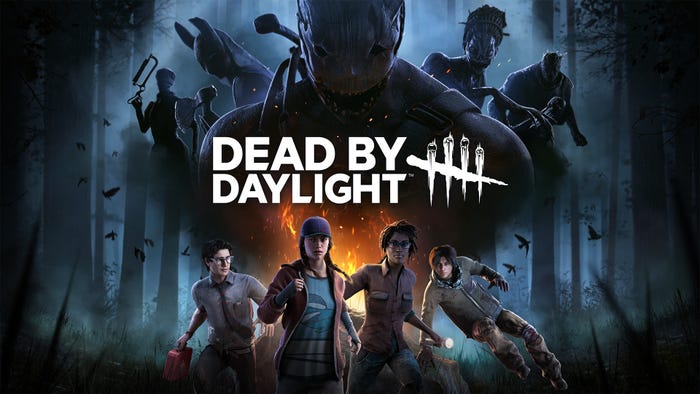WGGB Manifesto: Putting writers at the heart of the story
UK writers' union puts forward recommendations ahead of the general election.
June 6, 2024
[This unedited press release is made available courtesy of Game Developer and its partnership with notable game PR-related resource Games Press]
Writers' Guild :
PRESS RELEASE
** EMBARGOED UNTIL 10am BST on Thursday 6 June 2024 **
The UK creative industries are a success and writers are central to that. As the UK faces a General Election on 4 July, WGGB has today (6 June 2024) launched a manifesto which calls on whoever forms the next Government to implement our recommendations around four key areas, which we believe will protect, nurture and support UK writers.
Writers create the stories which form the bedrock of our world-leading creative industries, currently worth over £124 billion to the UK economy. Yet they are often underpaid, unprotected and their vital contributions overlooked.
Currently, whole sections of our industry are struggling to survive – theatres are closing or ceasing to develop new work, the number of UK independent films has been steadily reducing and our public service broadcasters are commissioning fewer original works.
This is reflected in what WGGB members have been telling us. A poll of WGGB theatre members post-pandemic found that 74% of playwrights had lost income due to the Covid shutdowns and 50% believed they would not be working in two years’ time. And a WGGB survey on writers and AI published in 2023 found that 65% of respondents believed that increased use of AI would reduce their income from writing, while 61% were worried that AI could replace jobs in their craft area.
More support is needed to ensure that the UK can continue to produce content that reflects the vibrancy and diversity of modern Britain. This is true of all sectors in which WGGB members work in – film, TV, theatre, audio, books, poetry, comedy, animation and videogames.
WGGB’s manifesto recommendations centre around fair pay, fair treatment, a sustainable sector and copyright and AI. You can read our recommendations in detail in our manifesto Putting writers at the heart of the story and in Notes to Editors below.
WGGB General Secretary Ellie Peers said: “Our members conjure the characters, worlds and stories that delight audiences, whether that’s on the page, stage, screen or across our airwaves.
“Writing is a highly skilled job and everything starts with the writer – without them there would be no feature films, TV or audio dramas, no plays, no books, poems or videogames.
“They provide the fuel that fires our creative industries, which in turn makes a major contribution to the UK economy. We call on whoever forms the next Government to enshrine protections for writers on fair pay and fair treatment, ensure that the creative sector is sustainable and, in a world that is being transformed by AI, introduce robust protections on copyright.”
What we’ll be doing
We’ll be talking to stakeholders and decision-makers about our manifesto in the run-up to and after the election to ensure writers and their vital contributions are firmly on the agenda.
What we’re asking our members and supporters to do:
Share this manifesto with parliamentary candidates standing in your area. You can find out the candidates standing in your area, plus ways to contact them, here.
Share this manifesto with your fellow writers and other colleagues in the creative industries, and encourage them to share it too. Use the hashtag #WGGBManifesto and tag us on X @TheWritersGuild, Instagram @writersguildgb or any of our other channels. We’ve produced some graphics which you can download from www.writersguild.org.uk/manifesto [available from 10am BST, Thursday 6 June 2024]
WGGB is a trade union NOT affiliated to any political party. Find out more about how this affects the union in the run-up to a General Election, plus useful information on registering to vote and voter ID here
ENDS
Notes to editors
WGGB Manifesto
You can download our manifesto Putting writers at the heart of the story here.
Below you can read our recommendations around the four areas of fair pay, fair treatment, a sustainable sector, and copyright and AI
Fair pay
Writing is a highly skilled occupation that requires dedication and training. For it to
be a viable occupation, open and available to those of all backgrounds, the following
are required:
· Greater restrictions on free work/low pay across the creative industries, including internships and schemes, with penalties for those who continue to under pay.
· An end to ‘in-perpetuity buy-out’ clauses and other exploitative practices, through legislation that requires fair remuneration for creators (including royalties and residuals).
· Greater parity of earnings for those writing children’s and animated content.
· Tax and benefit reform to ensure the system is fit for purpose for a freelance workforce whose earnings fluctuate and who are often paid in lump sums.
· Action to deter late payment of freelance writers.
Fair treatment
The creative industries continue to lag behind other industries when it comes to the treatment of its (largely freelance) workforce. Writers are particularly vulnerable when working in an industry that relies heavily on personal connections and informal networks and where raising concerns can result in a loss of future work. To ensure that writers are treated fairly and receive adequate protection, we believe the following are required:
· Increased accountability and transparency measures for funding bodies, focusing on the distribution of public money to freelance creators.
· Introduction of accountability measures for venues and production companies that engage freelance writers – especially those that receive public funds.
· Greater scrutiny of the working practices of all venues and companies that engage freelance creators.
· Improved commissioning processes – including greater transparency around decision making.
· Mandatory equalities monitoring and reporting on freelancers engaged in the creative industries.
· Improved protections for freelance workers against discrimination, bullying and harassment.
· The introduction of ‘access riders’ across the industry.
· Independent inquiries into racism, sexism and other forms of discrimination in the creative industries.
· The introduction of a Freelance Commissioner for creatives.
A sustainable sector
We need immediate action to ensure that UK writers are able to access and sustain careers in the creative industries and that the industries themselves are able to survive in the context of a global market and climate emergency. Steps that help towards this include:
· Increased and improved routes to direct funding for freelance writers.
· Increased, ringfenced funds for the Public Lending Right (PLR) fund, and an expansion of the qualifying libraries to include private, community and educational libraries.
· Increased financial support for the creative industries as a whole, but with improved accountability regimes to ensure that the benefit reaches writers and other creators.
· A strengthened ‘cultural test’, that recognises the importance of UK-based writers and storytellers when making work that qualifies for tax relief and other benefits.
· Measures to ensure that UK talent, resources and intellectual property are protected in an increasingly global industry.
· Increased funding for creative education and skills training programmes, including measures to ensure that accessible routes to the industry are available to all.
· Education reform to ensure that all young people have access to arts education.
· Support for the industry to transition towards more climate friendly practice.
Copyright and AI
Recent developments in AI pose a significant threat to writers’ work and earnings. To protect writers, the next Government and the Intellectual Property Office should work to:
· Maintain and strengthen existing copyright protections.
· Establish a new regulatory body to monitor and regulate AI expansion.
· Ensure that AI licensing agreements are always required for the use of work by AI and that the granting of such licences is at the discretion of the rights holder.
· Require AI developers to maintain clear and accessible logs of the information used to train their tools and allow writers to check if their work has been used.
· Ensure that where AI has been used to generate content or make decisions, it is clearly labelled.
· Ensure a right to human review is in place wherever AI decision-making is used.
About the Writers’ Guild of Great Britain
The Writers’ Guild of Great Britain (WGGB) is a trade union representing writers for TV, film, theatre, radio, books, comedy, poetry, animation and videogames. It negotiates national agreements on pay and conditions with key industry bodies, including BBC, ITV and Pact; the Royal Court, National Theatre and Royal Shakespeare Company. It campaigns and lobbies on behalf of writers and offers a range of benefits to its members, including free contract vetting, support and advice; events and discounts; free training; a weekly ebulletin; a pension scheme and welfare fund. Members include professional and emerging writers and membership starts at £9 per month.
Website: www.writersguild.org.uk
For further information contact Sarah Woodley, Communications Manager, Writers’ Guild of Great Britain. Email: [email protected]
About the Author
You May Also Like








.png?width=700&auto=webp&quality=80&disable=upscale)
.png?width=700&auto=webp&quality=80&disable=upscale)